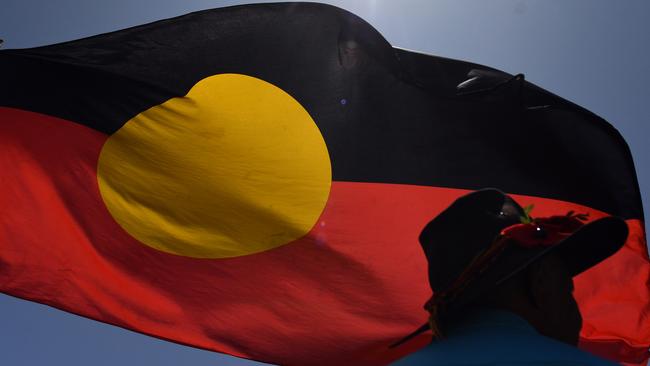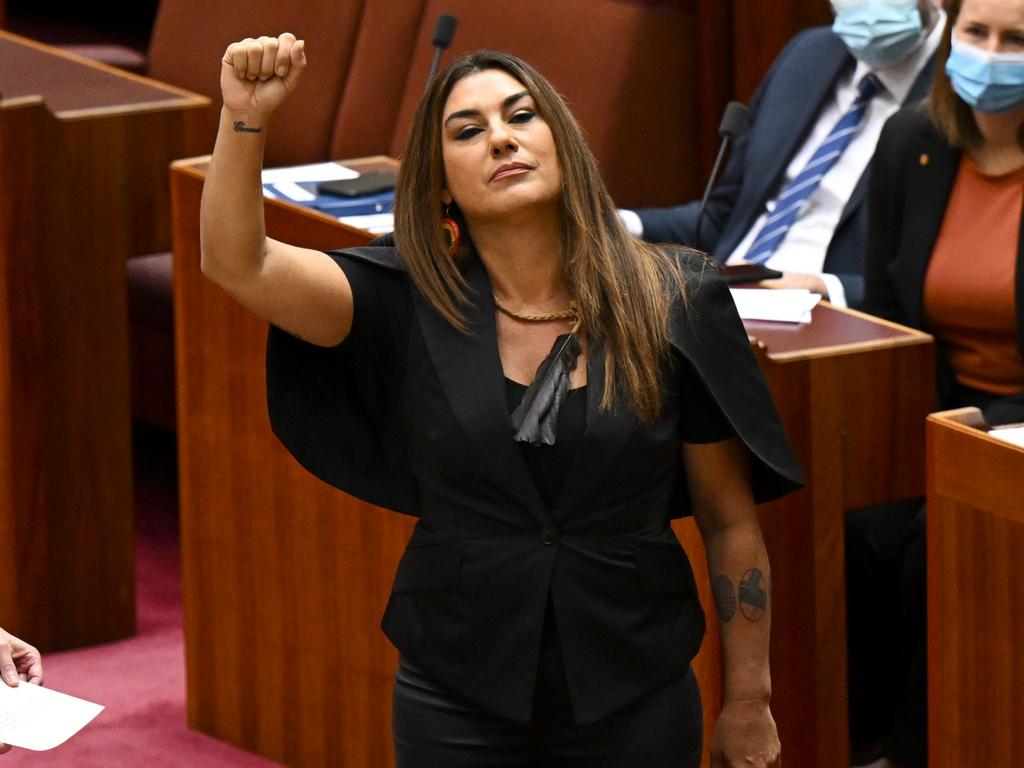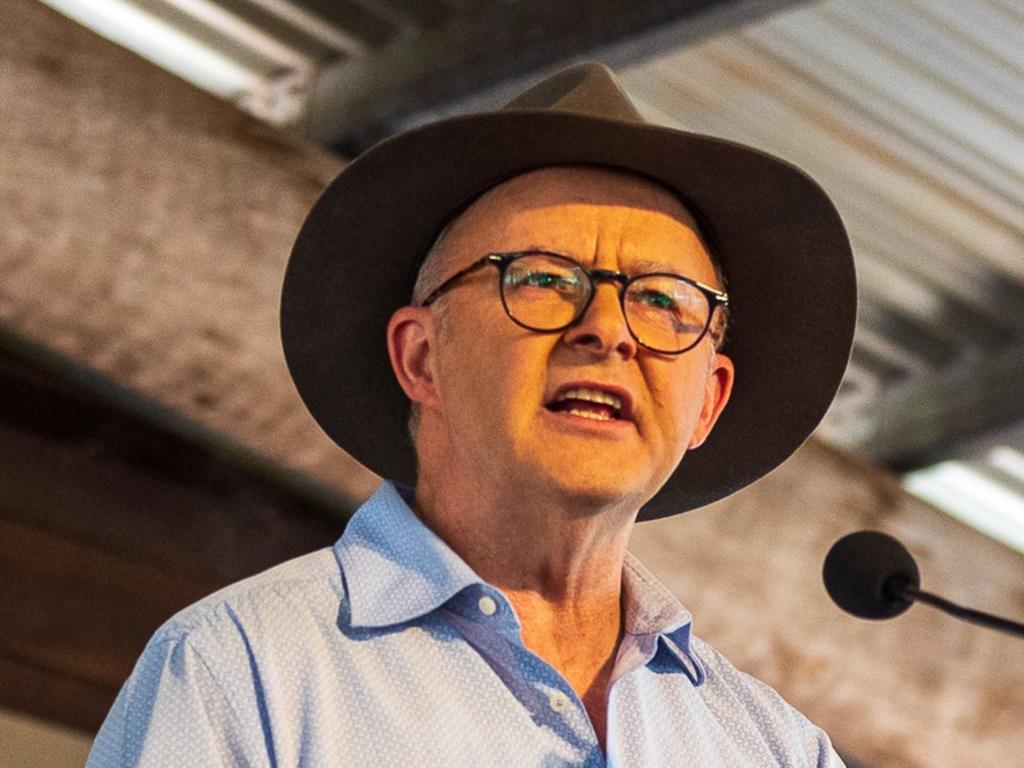
It contradicts the essence of liberalism. It’s tragic the Liberal Party doesn’t have the strength of intellect or character to oppose it in principle. Liberalism’s great historic idea, which it got from Christianity, is that all people are equal in fundamental status. Liberalism’s defining project over 200 years has been removing race and gender from civic status, from rights and obligations.
This is a magnificent vision. Humanity is utterly distinctive, meaning it has ineradicable human dignity, and utterly universal, meaning every human being is equally endowed with rights and obligations. The state has no business distinguishing one citizen from another by ethnicity, heritage or gender. Yet the voice does exactly that.
Aboriginal Australians were at times brutally mistreated in our history and many have suffered continuing disadvantage. Like most Australians I honour Aboriginal culture. None of that provides any justification for breaching the principle of a colourblind state.
I oppose a constitutionally enshrined voice not because I’m a conservative but because I’m a liberal. It is not that a voice will give Indigenous Australians too many privileges. Rather it contains the message that Aboriginal Australians are fundamentally different from other Australians.
However grandiloquent the rhetoric, or benevolent the platitudes, this is a toxic and dangerous message. It represents a terrible wrong turn in Aboriginal activism towards identity politics, which is destructive anywhere it’s prominent. Identity politics is the enemy of human dignity because, in it, virtue and vice come not from your choices and actions but from your identity, defined by race, gender or other characteristics.
The purpose of identity politics is not to solve a problem but to create permanent rage and dissatisfaction, never more than temporarily assuaged by endless rituals of apology and ideological conformity.
It quickly assumes the quality of a state religion in which heresy is dangerous.
New Country Liberal Party senator Jacinta Price expressed this far more eloquently than I can in her magnificent maiden speech – a kind of Australian Gettysburg Address that should be read by all Australians. She said: “It would be far more dignifying if we were recognised and respected as individuals in our own right who are not defined by our racial heritage but by the content of our character … It’s time to stop feeding into a narrative that promotes racial divide, a narrative that claims to try to stamp out racism but applies racism in doing so and encourages a racist over reaction.”
Warren Mundine, a former federal government adviser on Indigenous issues and a star Liberal candidate for a winnable seat in the 2019 election, argues a similar case.
He tells me: “I’m a liberal democrat. I love and believe in liberal democracy. The basis of liberal democracy is that everyone is equal before the law. We fought for decades to be treated as equals. Now there is no law that is discriminatory against Aborigines. Some people talk of two sovereignties – how can there be two sovereignties in one country?”
Price made the further point in a television interview that having the voice forever in the Constitution implies that Aborigines will be marginalised forever, for the whole basis of the voice is that parliamentary democracy doesn’t work for Aboriginal Australians. The voice, like all identity politics, is a partial repudiation of parliamentary democracy.
Anthony Albanese could hardly have started better as Prime Minister. His shrewdness and judgment are evident in his advancing the least damaging model possible of a voice, one that is entirely inferior to parliament and can be designed and changed by parliament. Albanese has a shrewd sense of achievable change. It is a very useful set of limitations he has put around his proposal. The best attribute of the voice in Albanese’s model is that it will have no power.
Nonetheless it is still an extremely bad idea in principle. It is also the case that no one can predict what doctrines an activist High Court might dream up in relation to a race-based political institution whose existence is guaranteed in the Constitution.
It will of course be an interesting question whether Albanese can hold the line on his preferred referendum wording. Further, the very limitations that Albanese proposes demonstrate the illogicality and self-contradiction that accompany this damaging proposal at every stage.
The voice proponents claim it is needed so Indigenous Australians can have a say on laws that affect them, as though all Australians do not have that right, and as though mainstream society today is deaf to Aboriginal voices. But at the same time it is proposed that parliament can design, amend and determine the membership, scope, functions and operations of the voice.
Parliament can do all that today if it wants to. So if there really is a practical problem of consultation to be solved, there is no reason to change the Constitution, and thereby change the very nature of citizenship for all Australians. Similarly, while it is certainly true that much policy towards Indigenous Australians has not been successful, it is just not accurate to say Aborigines have not been consulted regarding policies that affect them.
In any policy regarding remote and distinctive communities today, consultation with those communities ought to be a paramount concern for state and federal governments. Consultation in itself doesn’t necessarily solve all problems.
I was working in the Canberra press gallery when a former Aboriginal affairs minister Gerry Hand created the Aboriginal and Torres Strait Islander Commission. The Hawke government held out the same hopes for practical benefit from ATSIC as voice proponents hold out today. ATSIC was a failure. That doesn’t mean something better can’t be tried today. But there is no reason at all for this to go in the Constitution.
Previous Liberal prime ministers ruled out a constitutionally enshrined voice but the Liberal Party never argued the case in a sustained way and continued to lavishly fund pro-voice activities.
Here’s a tip for the Liberal Party: if you don’t enter an argument you can’t win it. When Peter Dutton appointed Julian Leeser, in every way a good person but a committed proponent of the voice, as Indigenous Australians spokesman. I presumed the Liberal Party was preparing a characteristic surrender.
Price’s maiden speech alone probably makes full surrender – that is, formal support for the voice – less likely. Instead the Liberals may adopt a fatuous neutrality, which is just a more ambiguous form of surrender. Thus liberalism declines, one defeat at a time.







Let’s get straight to the point. A constitutionally enshrined Aboriginal and Torres Strait Islander voice to parliament is a terrible idea, wrong in principle and harmful in practice.